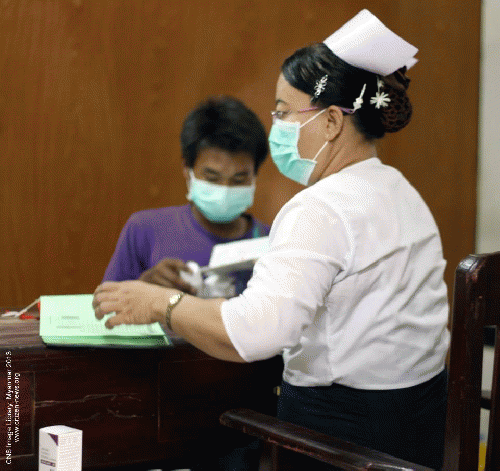Dr Ian Hodgson, CNS (Citizen News Service)

Do not leave Nurses behind in fight to end AIDS by 2030
(Image by CNS (Citizen News Service)) Details DMCA
(CNS): Since the beginning of the HIV epidemic, nurses have been at the forefront of the response to this once-fatal infection. The nurse is involved at every stage of the trajectory of a person living with HIV--from usually being the first to counsel the newly diagnosed person, to one of the last to be with him/her at the point of death.
This significant, albeit less recognized, role played by nurses across the world in the care, support, and treatment of people living with HIV (PLHIV) was the key theme of an important event hosted by the US based Association of Nurses in AIDS Care (ANAC) at the recently concluded 22nd International AIDS Conference (AIDS 2018) in Amsterdam, Netherlands.
Nurses are the backbone of effective HIV response
Nurses have always been the front and centre of public-health crises. In the most recent outbreak of Ebola during May 2018 in the Democratic Republic of Congo, the first health professional to die of the infection was a nurse. At the beginning of the HIV epidemic, nurses provided the bulk of in-hospital care during the difficult pre-ART phases, and though there are no recorded incidents of nurses catching HIV in the workplace, there is an associated toll. Nurses can often be stigmatized because of their place of work, and/or work alone in rural clinics with little support and the expectation that they provide all the required care. Nurses also provide point-of-care HIV tests, support people following a TB test, counsel pregnant young women following a positive HIV diagnosis, and give immediate information about treatment and lifestyle. Indeed, according to Carole Treston, Executive Director of ANAC, nurses are in a prime position to be champions of human rights, "stigma busters and discrimination fighters."
Why are nurses absent from HIV policy-making?
Yet nurses are usually absent from policy-making, and even the International AIDS Society has never had a nurse on its board. Nurses do seek influence, not through hubris but rather a desire to shape policy impacting directly on the lives of people affected by HIV. This is something they have in common with civil-society organisations, a cohort that since the beginning of the HIV epidemic has become, and rightly so, increasingly vocal and influential. But where are the nurses?
Often, they are simply too busy working at the ground. Then again, in some areas of Africa and South America, for example, nurses are routinely rotated around specialties, working as HIV nurses for only a limited period of time and with little opportunity for career progression in the field. There is also the question of gender, with female nurses less likely to progress in countries where gender inequality is endemic and with hierarchical health systems dominated by male doctors. This is perhaps the reason ANAC and other HIV nursing associations find it difficult to reach out and connect with nurses in eastern Europe and central Asia, where nurses are relatively disempowered compared to the west. Nurses here are unlikely to reach the levels of autonomy required for policy-making involvement and networking.
(Note: You can view every article as one long page if you sign up as an Advocate Member, or higher).





